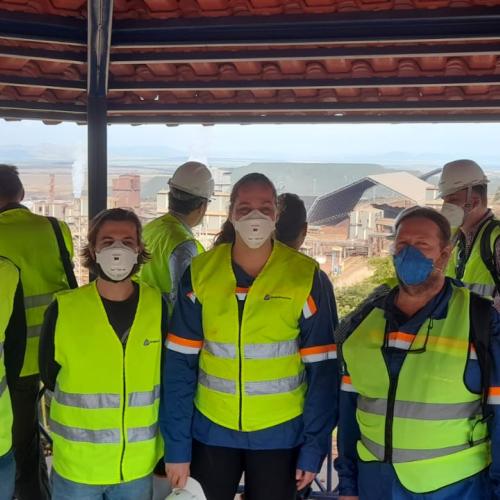BioProLat: Pioneering work in the energy-saving extraction of cobalt and nickel

Coordinator: Bundesanstalt für Geowissenschaften und Rohstoffe (BGR)
Contact person: Prof. Dr Axel Schippers
Adress: Stilleweg 2, 30655 Hannover
Phone: +49 511 643 3103
Email: axel.schippers(at)bgr.de
Project partners in Germany:
Project partners in Brasil:
The BioProLat project will develop an integrated energy-saving, environmentally friendly biohydrometallurgical process to recover metals (Co, Ni) from laterites in Brazil. To ensure the process is cost-effective and has a low environmental impact, it will combine innovative bioleaching and efficient metal recovery techniques with the proactive management of process wastewater and residue. BioProLat will increase the recovery of metals for existing mines, convert unutilized ores and limonite stockpiles into valuable resources and thus open up new reserves of raw materials.
Cobalt (Co) is considered a critical raw material (CRM) by the EU, as it is currently indispensable in battery production, especially for electric vehicles. A high Co demand has been forecast for Germany as an industrial location in the near future and the country is 100% dependent on imports. Similarly, nickel (Ni) is a raw material required for battery production and demand is expected to increase. Currently, 65% of European Co demand is met by imports from geopolitically unstable countries such as the Democratic Republic of Congo, Zambia and the Central African Republic. Lateritic nickel deposits are promising sources of cobalt. Several nickel laterites around the world are being investigated for cobalt, and some of them already produce Co as a by-product. Brazil, a major nickel producer, also has a large number of laterite deposits. The country risk and supply risk for raw materials from Brazil is considered comparatively low.
To extract metals from oxidised, limonitic laterite ores, the project team is developing a process for reductive bioleaching based on the Ferredox concept using chemolithotrophic, acidophilic bacteria (Acidithiobacillus). Laboratory-scale processes have already been tested, however, these require optimisation and upscaling, which are the main activities of this project.
The proposed reductive bioleaching technology for processing laterite ores has high sustainability potential and is a radical departure from established high-temperature technologies for laterite ores, enabling the use of much less complex reactors while reducing capital and operating costs and consuming much less energy and fewer chemicals.
The core components of the proposed reductive bioleaching process are as follows:
The extensive development work combines innovative bioleaching with efficient metal recovery techniques. The individual process steps must be tested and optimised in numerous, targeted laboratory trials.
The project team will integrate the process steps, combined with transfer and upscaling, and will conduct an economic, environmental and sustainability assessment in cooperation with its Brazilian partners. BioProLat aims to evaluate and compare the economic impact of the biohydrometallurgical process on the recovery of metal from laterites. Furthermore, BioProLat aims to improve resource efficiency considering economic, social and environmental sustainability, public acceptance and transferability to the processing of laterites worldwide.

